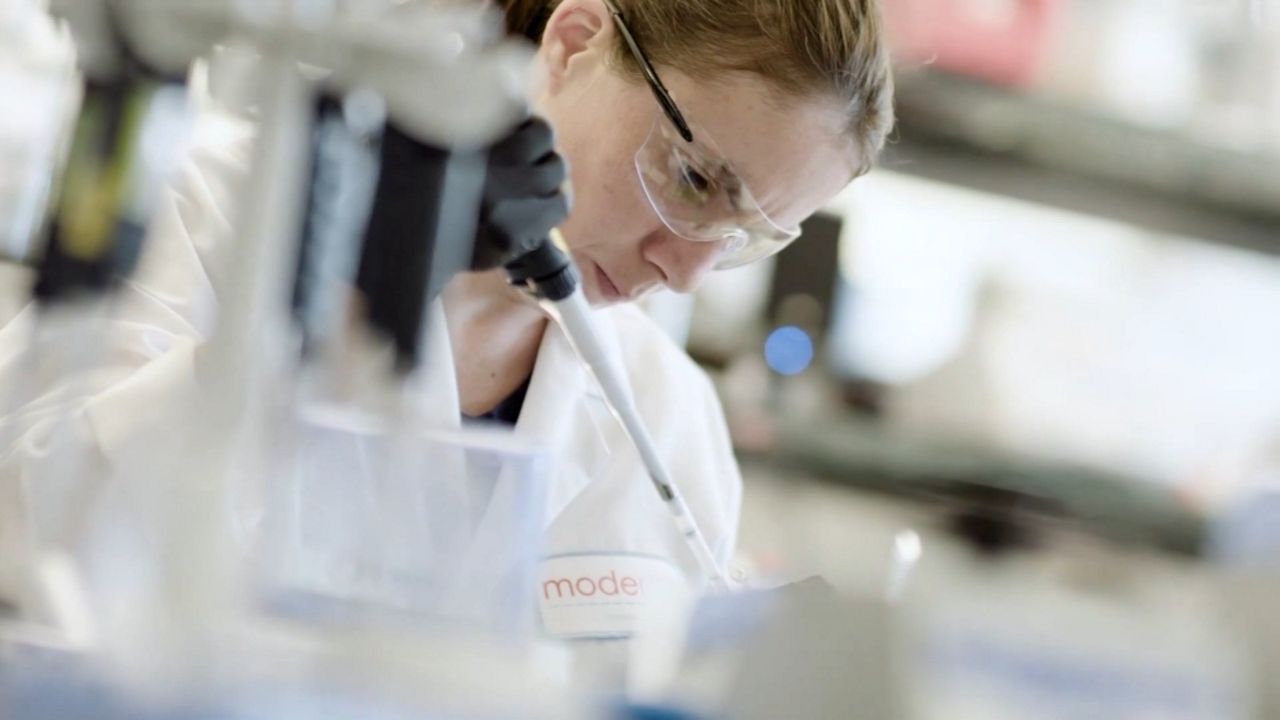The Centers for Disease Control and Prevention has accepted their Advisory Committee on Immunization Practices' recommendation that Moderna's COVID-19 vaccine can be given in the United States to adults 18 and over.
This action from the CDC allows the vaccine to be given in the US.
"With 2 recommended vaccines, ACIP will recommend additional groups for vaccination," the CDC wrote on Twitter.
The move comes at a critical time for the US amid the deadly pandemic as cases continue to surge.
Nationwide, more than 219,000 people per day on average test positive for the virus, which has killed at least 314,000 in the U.S. and upwards of 1.7 million worldwide.
The Pfizer and Moderna shots shipped so far and going out over the next few weeks are nearly all going to health care workers and residents of long-term care homes, based on the advice of the Advisory Committee on Immunization Practices.
There won’t be enough shots for the general population until spring, so doses will be rationed at least for the next several months. President-elect Joe Biden pledged earlier this month to have 100 million vaccine doses distributed in his first 100 days in office, and his surgeon general nominee said Sunday that it’s still a realistic goal.
But Vivek Murthy, speaking on NBC’s “Meet the Press,” said it’s more realistic to think it may be midsummer or early fall before coronavirus vaccines are available to the general population, rather than late spring. Murthy said Biden’s team is working toward having the shots available to lower-risk individuals by late spring but doing so requires “everything to go exactly on schedule.”
“I think it’s more realistic to assume that it may be closer to mid-summer or early fall when this vaccine makes its way to the general population,” Murthy said. “So, we want to be optimistic, but we want to be cautious as well.”
Meanwhile, Trump’s surgeon general, Jerome Adams, defended the administration’s handling of the Pfizer vaccine Sunday, a day after the Army general charge of getting COVID-19 vaccines across the U.S. apologized Saturday for “miscommunication” with states over the number of doses to be delivered in the early stages of distribution. At least a dozen states reported they would receive a smaller second shipment of the Pfizer vaccine than they had been told previously.
Also on Sunday, an expert committee began considering who should be next in line for early doses of the Moderna vaccine and a similar one from Pfizer Inc. and Germany’s BioNTech. Pfizer’s shots were first shipped out a week ago and started being used the next day, kicking off the nation’s biggest vaccination drive.
The expert panel members are leaning toward putting “essential workers” next in line, because people like bus drivers, grocery store clerks and others are getting infected most often. But other experts say people 65 and older should be next, along with people with certain medical conditions, because those are the Americans who are dying at the highest rates.
The expert panel’s advice is almost always endorsed by the U.S. Centers for Disease Control and Prevention. No matter what the CDC says, there will be differences from state to state, because various health departments have different ideas about who should be closer to the front of the line.
Both the Moderna vaccine and the Pfizer-BioNTech shot require two doses several weeks apart. The second dose must be from the same company as the first. Both vaccines appeared safe and strongly protective in large, still unfinished studies.
Moderna's shot shipped Sunday, with the first shots expected to be administered on Monday.
The Associated Press contributed to this report.



